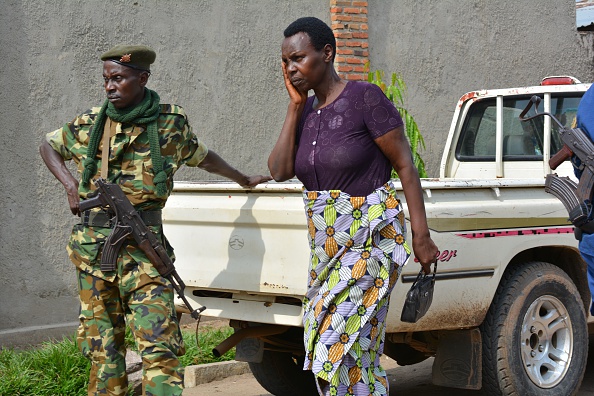
Two days before Pope Francis leaves for his first ever visit to central and east Africa and days after State Department officials concluded a two-week visit to the region and the Holy See, President Obama imposed sanctions on several government officials in Burundi.
Violence in the country has escalated since April, when President Pierre Nkurunziza announced he would seek a constitutionally prohibited third term. Some 250 people have been killed, according to the United Nations, and another 217,000 have fled the country.
“We have received multiple, credible, and ongoing reports of targeted killings, arbitrary arrests, torture, and political repression by security forces, as well as violence and abuses by youth militia affiliated with the ruling party,” National Security Council spokesman Ned Price said when the sanctions were announced on Monday.
Tom Perriello, the State Department’s Special Envoy to the Great Lakes Region of Africa and a former Virginia congressman, visited Burundi, Uganda, Rwanda, and Ethiopia for ten days earlier this month, and concluded his trip with a brief but significant stop at the Vatican on November 18. He met with Vatican foreign minister Archbishop Paul Gallagher at the Vatican’s Secretary of State, as well as officials and religious orders that are active in region.
“We face a very serious risk that this becomes a much broader conflict,” Perriello says. “We certainly remain vigilant about any sign that this will take on a greater ethnic component, but even if we do not see genocide, it is important for all actors to know that torture and extrajudicial killings conducted equally across ethnic groups does not make those actions OK—they are still international crimes and causes for serious consequences form the international community.”
Read More: President Obama Imposes Sanctions on Burundi Officials
Burundi has increasingly been a foreign policy focus at the Vatican as the country’s crisis has escalated. When U.S. Assistant Secretary of State Sheba Crocker visited the Vatican in May to discuss shared climate goals, Vatican officials raised the topic of the then-upcoming elections in Burundi. The country’s Catholic bishops, like much of the international community, did not support Nkurunziza’s third term, an election which Obama has called “not credible.” In May, Burundi Archbishop Evariste Ngoyagoye of Bujumbura escaped an assassination attempt as he celebrated Sunday mass. More recently, several Catholic priests have been kidnapped, Perriello says.
Gallagher, now a top official in Pope Francis’ Vatican, was previously the Holy See’s ambassador to Burundi in 2004 after the assassination of then-Archbishop Michael Courtney. His personal interest and knowledge of the situation, Perriello says, was particularly helpful and allowed for an extensive conversation.
“The Pope himself and the Vatican have certainly been engaged in the Great Lakes for some time as a voice for human rights and a voice for peace,” Perriello says. “So as we face the current crisis in Burundi and the challenging political transition in DRC, we are very interested to see how the Church can be a partner for peace and human rights.”
Any political solution is going to require more than diplomatic efforts with the Vatican. Perriello spent only a day in Rome, but a week visiting political leaders in Uganda, Rwanda and the African Union in Ethiopia. International urgency, he notes, is mounting to get a peace process started before the crisis grows.
“There is an effort by [Burundi’s] leaders to dismiss this as mere political opposition, and I think the people just aren’t buying it,” Perriello says. “Right now our primary goals are to pressure both sides to step back from the brink of war and to get a regional dialogues started so there is a credible process for solving the underlying issues. […] We think there is still a window for peace and we are going to continue to do everything we can to use that window to find a peaceful solution.”
Read Next: Photos Capture 3 Months of Political Unrest in Burundi
More Must-Reads from TIME
- Donald Trump Is TIME's 2024 Person of the Year
- Why We Chose Trump as Person of the Year
- Is Intermittent Fasting Good or Bad for You?
- The 100 Must-Read Books of 2024
- The 20 Best Christmas TV Episodes
- Column: If Optimism Feels Ridiculous Now, Try Hope
- The Future of Climate Action Is Trade Policy
- Merle Bombardieri Is Helping People Make the Baby Decision
Contact us at letters@time.com